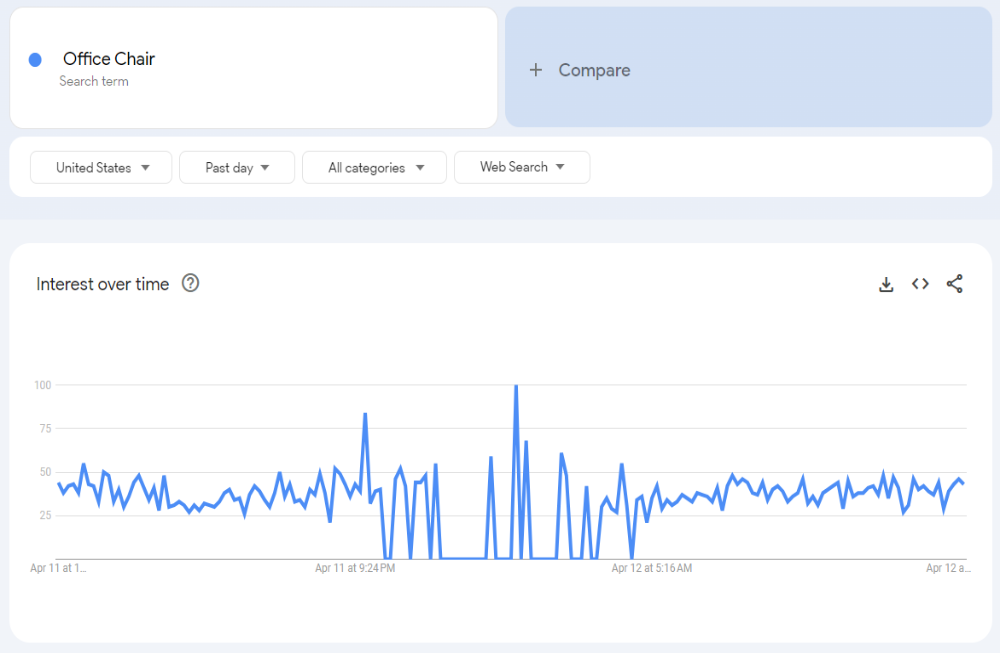Beginners Earn Online! Mastering Affiliate Marketing
Contents
- Beginners Earn Online! Mastering Affiliate Marketing
- Understanding Affiliate Marketing: A Simple Guide
- Why Affiliate Marketing is an Ideal Online Money-Making Strategy
- Low Entry Barriers and Minimal Startup Costs
- Flexibility and Scalability
- Potential for Passive Income
- Choosing the Right Affiliate Programs: A Critical Step for Success
- Selecting Reputable and Relevant Affiliate Programs
- Researching Potential Affiliate Programs
- Using Tools to Assess Product Popularity and Demand
- Creating Your Online Presence: The Bedrock of Affiliate Marketing Success
- The Role of Content in Affiliate Marketing
- Starting with a Simple Website or Blog: Basics and Benefits
- Developing a Content Strategy That Aligns with Online Searches
- SEO and Content Marketing for Affiliate Success: Enhancing Visibility and Engagement
- Introduction to Search Engine Optimization (SEO)
- Tips for Creating SEO-Friendly Content
- Strategies for Incorporating Affiliate Links Organically
- Leveraging AI and Technology: Revolutionizing Affiliate Marketing
- AI in Content Creation and Optimization
- Streamlining Affiliate Marketing Efforts
- Building and Growing Your Affiliate Marketing Business: Strategies for Success
- The Significance of Consistency and Quality in Content Creation
- Diversifying Affiliate Products and Exploring Different Marketing Channels
- Monitoring Performance and Making Data-Driven Adjustments
- Final Thoughts and Next Steps: On Your Affiliate Marketing Journey
- Recap of Key Points
- Encouragement
In today’s digital age, the quest to find lucrative ways to earn money online has led many toward the promising path of affiliate marketing. This strategy not only offers the allure of financial freedom but also serves as a gateway for beginners to step into the vast online marketing arena with minimal startup costs.
Affiliate marketing, at its core, revolves around promoting products or services and earning commissions for every sale or action completed through your referral. This concept might sound simple, yet it harbors the potential for significant income, especially for those who approach it with the right strategy and mindset.
The beauty of affiliate marketing lies in its accessibility. You don’t need to be a tech wizard or have a substantial initial investment to get started. Whether you’re looking to supplement your income or aspire to build a full-time business, affiliate marketing can be tailored to fit your goals.
With the internet as your platform, the possibilities are endless, and the potential earnings can be substantial. The key to unlocking this potential, however, lies in understanding the nuances of affiliate marketing and employing effective strategies that resonate with your target audience.
As we delve deeper into this guide, we aim to equip beginners with the essential knowledge and tools needed to embark on a successful affiliate marketing journey. From choosing the right affiliate programs to leveraging the power of content and SEO, we’ll explore the steps you can take to turn affiliate marketing into a profitable and fulfilling online venture.
So, if you’re ready to explore the exciting world of affiliate marketing and discover how it can transform your financial landscape, you’re in the right place. Let’s embark on this journey together and unlock the potential that affiliate marketing holds for you.
Understanding Affiliate Marketing: A Simple Guide
Affiliate marketing is a dynamic online strategy that serves as a bridge between businesses seeking to promote their products or services and individuals or marketers willing to advertise these offerings to their audience. In its simplest form, affiliate marketing is the process of earning a commission by promoting someone else’s or a company’s products. You find a product you like, promote it to others, and earn a piece of the profit for each sale that you successfully make.
But how does this process work in practice?
Here’s a breakdown:
- Signing Up for Affiliate Programs: The first step is to join an affiliate program. Many companies offer these programs as a way to encourage individuals or other businesses to spread the word about their products or services. Once you’re accepted into an affiliate program, you’re provided with a unique affiliate link. This link tracks the traffic and sales you generate for the company’s products or services.
- Promoting Products: With your unique affiliate link in hand, you can begin the work of promoting the company’s offerings. This promotion can take many forms, including writing blog posts, creating social media content, sending out emails to a subscriber list, or even making videos. The goal is to share the affiliate products with your audience in a way that adds value to them, encouraging them to make a purchase through your link.
- Earning Commissions: When someone clicks on your affiliate link and makes a purchase, you earn a commission from the sale. The commission rate varies widely depending on the company and the product. It can range from a small percentage of the sale to more than half the sale price in some cases. The beauty of affiliate marketing is that you can earn commissions not just on the products you actively promote but also on other products the customer buys if they were directed through your affiliate link.
Affiliate marketing is an attractive way to monetize online content for several reasons. It allows individuals and businesses to partner with brands they trust and products they value, offering an authentic way to engage with their audience and generate income.
Additionally, it’s performance-based, meaning you only earn when your marketing efforts result in a sale, aligning your incentives with those of the companies you’re promoting. This relationship fosters a dynamic online ecosystem where both parties—affiliates and businesses—benefit from each other’s success.
In the following sections, we will delve deeper into how to select the right affiliate programs, leverage your online presence for maximum effect, and use strategic content marketing to boost your affiliate marketing success. Stay tuned as we unlock the secrets to making affiliate marketing work for you.
Why Affiliate Marketing is an Ideal Online Money-Making Strategy
Affiliate marketing stands out as a beacon for those venturing into the online business world for several compelling reasons. It’s not just about promoting products or earning commissions; it’s about leveraging a system that offers flexibility, low entry barriers, minimal startup costs, and the potential for significant passive income. Let’s explore why affiliate marketing is considered an ideal strategy for making money online.
Low Entry Barriers and Minimal Startup Costs
One of the most enticing aspects of affiliate marketing is its accessibility. Unlike starting a traditional business, which can require significant upfront investment and resources, entering the world of affiliate marketing is comparatively straightforward and cost-effective. You don’t need to create a product or service, hold inventory, deal with packaging or shipping, or even provide customer service.
Your primary role is to connect a potential customer with a product or service. This can often be done through platforms and tools that are free or very inexpensive to use, such as social media, blogs, or YouTube. As a result, almost anyone with an internet connection and a dedication to learning can start with affiliate marketing.
Flexibility and Scalability
Affiliate marketing offers an unmatched level of flexibility both in terms of work location and hours. Affiliates can choose when and where they work, allowing for a balance between work and personal life that suits their individual needs. This flexibility also extends to the strategies affiliates use; they can promote products in a variety of ways, from content creation to email marketing and beyond.
Affiliate marketing is inherently scalable. As your skills in online marketing improve, and your audience grows, you can increase your earnings without a corresponding increase in workload or costs. This scalability makes affiliate marketing a viable option for growing from a modest side hustle to a significant income source.
Potential for Passive Income
Perhaps the most compelling reason to pursue affiliate marketing is its potential to generate passive income. Once the initial effort of creating and optimizing your promotional content is done, it can continue to earn commissions for you around the clock, even while you sleep or are away on vacation. This is especially true with evergreen content that remains relevant and useful over time, continually attracting new viewers and potential customers. Affiliate marketing can also involve recurring commissions from subscription-based products or services, further enhancing its potential as a source of passive income.
Take Aways:
Affiliate marketing is an attractive online money-making strategy due to its low entry barriers, minimal startup costs, flexibility, scalability, and the potential for earning passive income. Build their own businesses with limited risk and a high potential for return.
As we move forward, we’ll delve deeper into how to select the right affiliate programs and strategies to maximize your success in affiliate marketing. Whether you’re looking for a side hustle or a full-time income, affiliate marketing offers a path to achieving your financial goals with creativity and effort.
Choosing the Right Affiliate Programs: A Critical Step for Success
The foundation of a successful affiliate marketing strategy lies in choosing the right affiliate programs. This choice can significantly influence your ability to generate income and build a sustainable online business.
It’s not just about picking any program that comes your way; it’s about finding a match that aligns with your audience’s interests, your content, and the products or services you’re genuinely passionate about. Let’s delve into the crucial aspects of selecting reputable and relevant affiliate programs, and share some tips on conducting effective research to make informed decisions.
Selecting Reputable and Relevant Affiliate Programs
Reputation Matters: Partnering with established and reputable affiliate programs is crucial. A well-regarded program not only ensures that you’re promoting quality products or services but also that you’ll likely encounter fewer issues with payouts and affiliate support. Promoting products from reputable sources enhances your credibility with your audience, building trust and loyalty.
Relevance is Key: The alignment between the affiliate products and your audience’s interests cannot be overstated. When selecting an affiliate program, consider whether the products or services you’ll be promoting are a natural fit for your content and audience. Relevant offers are more likely to resonate with your followers, leading to higher conversion rates and more sustainable earnings.
Researching Potential Affiliate Programs
Leverage Affiliate Networks: Platforms like Partner Stack, Commission Junction, and ShareASale act as intermediaries between companies offering affiliate programs and potential affiliates. These networks provide a centralized location to browse through hundreds of affiliate programs, making it easier to compare terms, commission rates, and products. Utilize these platforms to discover opportunities that align with your niche and content strategy.
here is a list of Affiliate Sites you can explore.
| No. | Affiliate Network | URL to Sign Up |
|---|---|---|
| 1 | Amazon Associates | Amazon Associates |
| 2 | Commission Junction (CJ) | CJ Affiliate |
| 3 | ShareASale | ShareASale |
| 4 | Rakuten Advertising | Rakuten Affiliate |
| 5 | ClickBank | ClickBank |
| 6 | PartnerStack | PartnerStack |
| 7 | Impact | Impact |
| 8 | Awin | Awin |
| 9 | Avangate Affiliate Network | Avangate |
| 10 | FlexOffers | FlexOffers |
Read Reviews and Testimonials: Research what other affiliates have to say about their experiences with various programs. Online forums, blogs, and social media groups dedicated to affiliate marketing can be rich sources of insights and reviews. Hearing firsthand from others can help you identify the programs that offer solid support, fair commission structures, and reliable payment processes.
Using Tools to Assess Product Popularity and Demand
Google Trends: This free tool allows you to gauge the interest and demand for specific products or services over time. By inputting the name of the product or service you’re considering promoting, you can see search volume trends that can indicate its popularity. High or increasing interest levels suggest a viable product that could potentially lead to successful affiliate marketing efforts.

Keyword Research Tools: Tools like Ahrefs, SEMrush, or even Google’s Keyword Planner can help you understand the search volume and competition for keywords related to the affiliate products you’re considering. High search volumes with manageable competition levels indicate a product with good potential for affiliate marketing.
Selecting the right affiliate programs is a critical step that requires careful consideration and research. By focusing on reputable and relevant programs, leveraging affiliate networks for research, and using tools to assess market demand, you can position yourself for success in the competitive world of affiliate marketing.
Remember, the goal is to create a win-win-win situation: for you, your audience, and the companies you’re promoting. With the right approach, affiliate marketing offers a powerful way to monetize your online presence while providing value to your audience.
Creating Your Online Presence: The Bedrock of Affiliate Marketing Success
Affiliate marketing, establishing a robust online presence is not just beneficial; it’s essential. Your online platforms—be it a blog, social media account, or YouTube channel—serve as the conduit through which you engage with your audience and promote affiliate products.
Let’s explore the crucial role of content across these platforms, how to start with a simple website or blog, and the importance of developing a content strategy that resonates with your target audience and what they are actively searching for online.
The Role of Content in Affiliate Marketing
Blogs: A well-maintained blog is a powerful tool in affiliate marketing. It allows you to delve deep into product reviews, comparisons, and tutorials, providing value to your readers while seamlessly integrating affiliate links. The key here is quality content that educates, entertains, or solves problems for your audience, encouraging them to trust your recommendations.
Social Media: Platforms like Instagram, Facebook, and Twitter offer the chance to connect with your audience in a more immediate and personal way. Through engaging posts, stories, and direct interactions, you can build relationships while promoting affiliate products. Social media’s visual nature also makes it ideal for showcasing the benefits and practical use of products, making it easier to influence purchasing decisions.
YouTube: With its vast audience and preference for video content, YouTube presents a unique opportunity for affiliate marketers. Creating product reviews, how-tos, and unboxing videos are excellent ways to engage viewers. Plus, YouTube videos often rank well in search engine results, providing another avenue for people to find your content and affiliate links.
Starting with a Simple Website or Blog: Basics and Benefits
Getting Started: Launching a website or blog is simpler than ever, thanks to user-friendly platforms like WordPress, Wix, and Squarespace. These services offer templates and drag-and-drop interfaces that make it easy to design your site without needing to code.
Benefits: Having your own website or blog establishes your authority and provides a dedicated space for your content that you fully control. It serves as the hub for your affiliate marketing efforts—a place where your audience can always find you and your curated content. Moreover, a website allows for the integration of SEO strategies to attract organic traffic, increasing the visibility of your affiliate links.
I use HostGator and Have been for several years they provide one click WordPress Install you can get started straight away, If you need a domain I recommend Godaddy or Name Cheap I use them both.
Developing a Content Strategy That Aligns with Online Searches
Understanding Your Audience: Begin by identifying the interests, needs, and pain points of your target audience. This understanding will guide the creation of content that appeals directly to them, increasing the likelihood of engagement and conversions.
Keyword Research: Utilize keyword research tools to discover what your target audience is searching for online. This research will inform your content topics, ensuring that you’re creating material that meets the existing demand.
Content Planning: Develop a content calendar that outlines what you’ll publish and when. A consistent posting schedule keeps your audience engaged and helps establish your site as a reliable source of information. Your content should vary in format—ranging from in-depth articles and blog posts to quick tips on social media and comprehensive video guides on YouTube—to cater to different preferences and maximize reach.
SEO Optimization: Incorporate SEO best practices into your content to improve its visibility in search engine results. This includes using relevant keywords naturally, optimizing meta tags and descriptions, and creating quality content that encourages sharing and backlinks.
In essence, creating a compelling online presence through valuable content is paramount in affiliate marketing. By starting with a simple website or blog, engaging with your audience on social media, and leveraging the power of video on platforms like YouTube, you can create a multifaceted approach that effectively promotes affiliate products. Coupled with a strategic content plan that aligns with online searches, you’re well on your way to building a successful affiliate marketing business.
SEO and Content Marketing for Affiliate Success: Enhancing Visibility and Engagement
In the digital marketing landscape, the synergy between Search Engine Optimization (SEO) and content marketing is pivotal for the success of affiliate marketing efforts. SEO isn’t just about improving rankings in search engine results; it’s about making your content easily discoverable by those actively seeking information related to the products you’re promoting. This section delves into the basics of SEO, its importance for affiliate marketers, and practical tips for creating SEO-friendly content that ranks well on Google.
Additionally, we’ll explore strategies for seamlessly incorporating affiliate links into your content to drive conversions without disrupting the user experience.
Introduction to Search Engine Optimization (SEO)
SEO is a set of practices designed to improve the visibility and positioning of web pages in organic search results. For affiliate marketers, SEO is crucial because it directs targeted traffic to your content, increasing the chances of affiliate link clicks and subsequent sales. Effective SEO is rooted in understanding your audience’s search intent and optimizing your content to meet those needs, thereby improving your site’s relevance and authority in the eyes of search engines like Google.
Tips for Creating SEO-Friendly Content
Keyword Research: Start with comprehensive keyword research to identify the terms and phrases your target audience uses when searching for information related to the products you’re promoting. Tools like Google Keyword Planner, SEMrush, and Ahrefs can provide valuable insights into search volume and keyword difficulty, helping you select the most effective keywords to target.
Content Quality and Relevance: Google prioritizes content that is helpful, informative, and relevant to users’ queries. Ensure your articles, blog posts, and videos provide real value, addressing your audience’s questions, concerns, and interests. High-quality content that satisfies user intent is more likely to rank well in search results.
On-Page Optimization: Incorporate your target keywords naturally in the title, headings, meta description, and throughout the body of your content. Additionally, optimize images by using descriptive file names and alt tags, and ensure your page loads quickly and is mobile-friendly.
Strategies for Incorporating Affiliate Links Organically
Contextual Linking: Embed affiliate links within your content where they make the most sense contextually. For example, if you’re reviewing a product, include your affiliate link when you first mention the product name. This approach feels natural to readers and can improve click-through rates.
Balanced Promotion: While it’s important to include affiliate links, avoid overloading your content with them. A good rule of thumb is to ensure that your content provides value independently of the affiliate links. Your primary goal should be to inform and assist your audience; the promotion of products should feel like a natural extension of this effort.
Disclosure: Always be transparent with your audience by disclosing your affiliate relationships. This not only builds trust with your readers but is also required by law in many jurisdictions. A simple statement at the beginning of your content acknowledging the presence of affiliate links can suffice.
Use of Call-to-Actions (CTAs): Encourage readers to click on your affiliate links by using compelling call-to-actions. Whether it’s a prompt to “Learn more” about a product or an invitation to “Check out the latest deals,” effective CTAs can guide your audience toward taking the desired action.
By mastering SEO and content marketing strategies, affiliate marketers can significantly enhance their online presence, driving more traffic to their content and increasing the potential for affiliate sales. Remember, the goal is to create content that ranks well, engages your audience, and naturally leads them toward making a purchase through your affiliate links.
With patience, persistence, and ongoing optimization, your affiliate marketing efforts can yield substantial rewards.
Leveraging AI and Technology: Revolutionizing Affiliate Marketing
The advent of Artificial Intelligence (AI) and advanced technological tools has significantly transformed the landscape of digital marketing, including affiliate marketing. These innovations offer unprecedented opportunities for content creation, optimization, and personalization, enabling affiliate marketers to enhance their strategies, streamline operations, and deliver more tailored user experiences.
Let’s explore the ways in which AI can assist in content creation and optimization, and the potential it holds for streamlining affiliate marketing efforts and personalizing interactions with your audience.
AI in Content Creation and Optimization
Automated Content Generation: AI-powered tools are capable of generating content drafts, headlines, and product descriptions, saving marketers considerable time and effort. While human oversight is still necessary to ensure quality and relevance, these tools can significantly speed up the content creation process and help maintain a consistent publishing schedule.
SEO Optimization: AI technologies can analyze vast amounts of data to identify SEO trends and insights, suggesting optimizations for your content to improve its search engine ranking. Tools like Clearscope and MarketMuse offer content analysis and recommendations to enhance keyword usage, content structure, and topical relevance, making your articles more likely to be discovered by your target audience.
Content Personalization: AI algorithms can tailor the content displayed to individual users based on their past interactions, search preferences, and behavior. This level of personalization ensures that visitors are presented with the most relevant affiliate products, increasing the likelihood of engagement and conversions.
Streamlining Affiliate Marketing Efforts
Automated Campaign Management: AI can automate various aspects of affiliate marketing campaigns, from email marketing sequences to social media posts. By leveraging AI for routine tasks, affiliate marketers can focus on strategy and creative content creation, optimizing their time and resources.
Predictive Analytics: AI’s ability to predict trends and consumer behavior can be incredibly valuable for affiliate marketers. By analyzing data on user interactions and market trends, AI tools can forecast which products or services are likely to become popular, allowing marketers to adjust their strategies and affiliate offerings accordingly.
Enhanced User Experiences: AI technologies, including chatbots and virtual assistants, can provide instant support and guidance to users visiting your affiliate site or platform. These tools can answer questions, recommend products, and guide users through the purchase process, enhancing the overall user experience and potentially increasing conversion rates.
Leveraging AI and technology in affiliate marketing not only enhances content creation and optimization efforts but also streamlines marketing operations and personalizes user experiences. By adopting AI-powered tools and strategies, affiliate marketers can stay ahead in a competitive digital landscape, delivering content that resonates with their audience and drives conversions.
As these technologies continue to evolve, their potential to transform affiliate marketing strategies and outcomes will only grow, making it an exciting time for marketers to explore and integrate AI into their workflows.
Building and Growing Your Affiliate Marketing Business: Strategies for Success
Cultivating a successful affiliate marketing business requires more than just selecting the right affiliate programs and creating content. It demands ongoing effort in building, optimizing, and expanding your strategies to keep up with the dynamic nature of digital marketing and consumer preferences.
Key to this process are the principles of consistency, diversification, and the judicious use of data to inform decisions. Let’s delve into these pivotal strategies to help you build and grow your affiliate marketing endeavors effectively.
The Significance of Consistency and Quality in Content Creation
Consistency is Key: Regularly publishing high-quality content is essential for maintaining audience engagement and attracting new followers. A consistent content schedule signals to your audience that you’re a reliable source of information, encouraging repeat visits and fostering a loyal community. Additionally, consistent updates contribute to higher rankings in search engine results, increasing your visibility to potential new audience members.
Quality Matters: While consistency in publishing is important, the quality of your content is what truly captivates and retains your audience. High-quality, informative, and engaging content establishes your credibility and trustworthiness, which are crucial for convincing your audience to follow your recommendations and click on your affiliate links. Investing time in research, content planning, and creative presentation pays dividends in audience engagement and conversion rates.
Diversifying Affiliate Products and Exploring Different Marketing Channels
Product Diversification: Relying on a single affiliate program or a narrow range of products can be risky. Markets fluctuate, consumer interests shift, and affiliate program terms can change. Diversifying your affiliate product offerings can mitigate these risks and tap into new audience segments. It allows you to provide a broader range of solutions to your audience’s problems, enhancing the relevance and appeal of your content.
Exploring Marketing Channels: Don’t limit your affiliate marketing efforts to just one platform. Explore and utilize multiple channels to reach a wider audience. This could include combining your blog with a strong social media presence, email marketing campaigns, or even venturing into podcasting or YouTube content creation. Each channel offers unique advantages and allows for different types of engagement with your audience, broadening your reach and opportunities for affiliate sales.
Monitoring Performance and Making Data-Driven Adjustments
Data is Your Guide: Utilize analytics tools to monitor the performance of your content and affiliate links. Track metrics such as page views, click-through rates, conversion rates, and overall revenue generation. This data provides invaluable insights into what’s working and what isn’t, allowing you to refine your strategies and focus on the most effective content and products.
Adapt and Optimize: Based on the data collected, make informed adjustments to your content strategy, marketing tactics, and product offerings. Test different approaches to see what resonates best with your audience. This could involve experimenting with different content formats, tweaking your SEO strategy, or adjusting the placement and presentation of affiliate links within your content.
Building and growing a successful affiliate marketing business is a dynamic and ongoing process. By prioritizing consistency and quality in your content creation, diversifying your affiliate products, exploring various marketing channels, and making data-driven adjustments, you set a solid foundation for sustained growth and profitability.
Embrace the iterative nature of affiliate marketing, continuously seek ways to enhance your strategies, and stay adaptable to the ever-changing digital landscape. With dedication and a strategic approach, your affiliate marketing business can flourish, providing both financial rewards and the satisfaction of creating valuable content for your audience.
Final Thoughts and Next Steps: On Your Affiliate Marketing Journey
As we conclude this comprehensive guide to building a successful affiliate marketing business, it’s important to reflect on the key points we’ve discussed and prepare for the exciting journey ahead. Affiliate marketing presents a unique opportunity to generate income by connecting your audience with products and services that offer them real value. Through the strategic creation of quality content, effective use of SEO, leveraging AI and technology, and continuously adapting your strategies based on data-driven insights, you can cultivate a thriving affiliate marketing business.
Recap of Key Points
- Understanding Affiliate Marketing: At its core, affiliate marketing is about promoting products or services and earning a commission for each sale made through your referral. It’s accessible to beginners and offers the potential for significant income with the right approach.
- Creating Your Online Presence: A strong online presence across blogs, social media, and platforms like YouTube is essential. Consistency and quality in content creation are crucial for engaging your audience and establishing trust.
- Leveraging SEO and Content Marketing: SEO enhances the visibility of your content, making it easier for potential customers to find your affiliate links. Incorporating affiliate links organically within high-quality content is key to conversion.
- Utilizing AI and Technology: AI tools can assist in content creation, optimization, and personalization, streamlining your affiliate marketing efforts and improving user experiences.
- Building and Growing Your Business: Diversify your affiliate products and explore different marketing channels to expand your reach. Monitor performance and make data-driven adjustments to continually optimize your strategies.
Encouragement
Approaching affiliate marketing with patience and persistence is vital. Success in this field doesn’t happen overnight; it requires dedication, learning, and the willingness to adapt and grow. Each step you take builds upon the last, gradually leading you toward your goals. Remember, the journey of affiliate marketing is as rewarding as the destination itself, offering opportunities for personal growth and learning along the way.
Now is the time to take the first step towards your affiliate marketing journey. Begin by choosing an affiliate program that aligns with your interests and the needs of your audience. Create your first piece of content, optimize it for SEO, and share it with the world. Monitor its performance, learn from the experience, and then take your next step. With each action, you’ll move closer to building a successful affiliate marketing business that not only generates income but also provides value to your audience.
If you are having trouble finding a niche (don’t feel bad that was my biggest roadblock) you can check out his free report 5 Secrets to Finding Your Niche
Conclusion: Unlocking the Potential of Affiliate Marketing
Affiliate marketing presents an incredible opportunity for beginners eager to dive into the digital marketing world. It stands out not just as a pathway to financial independence but as a journey towards mastering the art of online communication and sales. This unique marketing strategy allows individuals to start with minimal upfront investment, leveraging their creativity, passion, and digital savviness to build a sustainable business.
By connecting audiences with products or services that resonate with their needs and interests, affiliate marketers play a crucial role in the digital economy, all while earning commissions that can lead to substantial financial growth.
The journey of affiliate marketing is one of constant learning, adaptation, and growth. It challenges you to continually refine your strategies, expand your online presence, and deepen your understanding of your audience’s needs.
The beauty of this journey lies in its accessibility and the endless possibilities it offers for personal and professional development. As you navigate the complexities of SEO, content creation, and audience engagement, you’re not just building a business—you’re acquiring skills that are invaluable in the digital age.
Let this guide be your starting point toward a rewarding career in affiliate marketing. Remember, success in this field doesn’t come from sporadic efforts; it’s the result of persistence, patience, and a relentless pursuit of excellence. Your ability to create compelling content, understand the nuances of digital marketing, and connect with your audience on a meaningful level will set the foundation for your success.
As you stand at the threshold of your affiliate marketing journey, know that the potential for financial and personal growth is immense. The road ahead is paved with challenges, but also with opportunities to make a significant impact—for your audience, for the brands you partner with, and most importantly, for yourself. Embrace the journey with an open mind and steadfast determination, and there’s no limit to what you can achieve.
Affiliate marketing is more than a career choice; it’s a journey toward becoming a more effective communicator, a savvy marketer, and an entrepreneur in your own right. Take the first step today, and unlock the vast potential that awaits you in the world of affiliate marketing. Your future self will thank you for the courage to start, the resilience to continue, and the vision to succeed.








